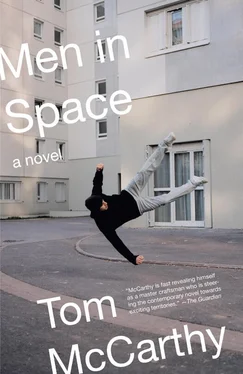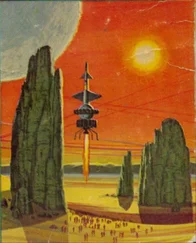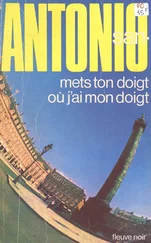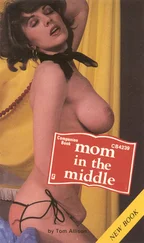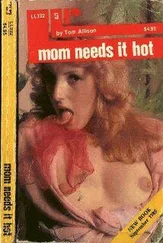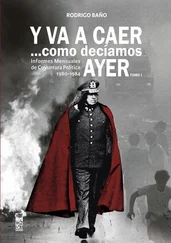He runs slowly at first so as not to look like a thief who’s just stolen something from the market, but by the time he’s crossed Dejvická he’s virtually sprinting. He doesn’t dare look back. At the top of V.P. Čkalova he passes the phone cabin from which he called up to the studio of the French artist who, it strikes him now, he should have got to do the copy instead of Maňásek: he remembers having to phone twice before some drunken reveller came down to open number seven’s door for him, which turned out to be on the latch already. He passes the cabin too fast to cut the corner properly and his feet slip slightly sideways on the snow as he turns: he feels like Charlie Chaplin, ducking and scuttling into some alleyway as he runs from baton-wielding cops. He can see the bar Ilievski told him to get to at the far end of this block. Between it and him, dustmen are out collecting rubbish. As he tears past them two pigeons flutter aside from the pavement where they’re picking at a rotten satsuma that’s spilt from a slit bag. Anton thinks of the plate his dark-complexioned friend will soon be bringing to his empty table and, suddenly, feels an intense sense of shame, as though it were this man and not the other, the detective, he’s running from …
He stops beneath the U Kočky’s sign, looks both ways down V. P. Čkalova and, seeing no one but the dustmen, enters. Inside, there’s a small bar area with two tables and a bench in it and, beyond this, down a couple of steps and to the left, a larger dining room. Ilievski and the others aren’t in either of these spaces, but as Anton stands in the middle of the lower one, aware that everybody in there’s looking at him as he pants for breath, he notices some more steps leading to a second, even lower dining room. He finds Ilievski, Janachkov and Milachkov in this room, sitting at a table. They’ve piled their coats and scarves up on a fourth chair; seeing him arrive, Milachkov and Janachkov lift them off and hang them on the backs of their own chairs.
“ Perfektní! ” Ilievski’s beaming at him, warmed up already by a vodka. “Ilievski Import/Export: four; Prague Police Force: nil.”
“Did you hear,” says Anton, hanging his own jacket on his chair’s back, “what happened when Levski decided to set up dustbins on their training ground and practise dribbling round them?”
“No,” they all reply in unison.
“The dustbins won three-nil.”
They roar with laughter at this, slamming their hands onto the table. Janachkov, who’s sitting closest to Anton, slaps his back:
“Always the joker.”
As Janachkov draws his arm away again, Anton notices a black metal object resting in his jacket’s inner pocket. Could it be a gun? Maybe it’s just his calculator. Anton smiles and sits down. Pigeon stew. The small room has four other tables in it and they’re all full, but he can tell instantly that they’re not police: grey Czech men, wrinkled, fat, drunk, playing cards or pointing at each other as they growl out their opinions about Mečiar and Havel and the Restituce . A waitress, forty-odd and tall with shoulder-length brown hair, comes and asks him what he’ll have. He tells her a Turkish coffee. Ilievski orders more vodkas all round. As soon as she’s gone, Ilievski rests his elbows on the table and makes eye contact with all three of them, calling the meeting to order.
“So,” he says, knocking a cigarette out of its packet, “we find ourselves in a rather odd position. We’ve fucked up, but our fuck-up was our fortune. I don’t think it would do any good, at this point, to start apportioning blame — or should I say praise?” He’s rehearsed this speech. Lighting up, he goes on: “But I would like to clear a couple of things up, just out of curiosity. First, Anton.”
Anton’s been worrying about this ever since Ilievski and Branka dropped him off back at Korunní three days ago. In the car Ili asked him about what the police had asked him, and asked him why they’d held him for so long. He answered that they’d tried to get him to admit he knew the painting was stolen, and to implicate others, i.e. Ilievski, in it — which was, after all, true if not the whole truth. Ili asked question after question and he gave answer after answer, while Branka listened in with his sharp lawyer ears — but he was so exhausted that he couldn’t remember afterwards what he’d said, and has had the feeling since then that he must have contradicted himself at some point. There’s been no contact between any of them since, on Ilievski’s instructions: just a phone call to Helena at her work yesterday to tell her to tell him to meet up at Hradčanská today. Anton tries not to look flustered now as Ilievski turns to him and asks:
“Did you tell this Ivan Maňásek how valuable the painting was?”
That’s easy. “No. He’s a strange person. I don’t think he tricked us so that he could sell it on.”
“Then why …”
“I think he just liked it.”
Ilievski can’t respond to this. He looks away, shaking his head slowly, and draws on his cigarette. Before he can ask his next question Janachkov chirps up:
“ Was a strange person.” He looks at Milachkov, then both men look down at the table. The waitress arrives with new vodkas; Ilievski passes one to each of them, and each sets theirs down on the tablecloth in front of him.
“Second question. Georgi and Stefan: have your flats been searched?”
“Ransacked.”
“Turned fucking upside down.” All those Bruce Lee videos, porn films.
“Mine too,” Ilievski says. “While you were still in custody, Anton. That’s how I knew that we’d been had. Then Branka said they’d have to release you. Helena said yesterday they came back and went through your place too.”
“Completely. Even the cellars — you know, where I was going to take it. And the neighbours’ ones. And the attic. And they even …”
“Yeah, we all had that,” Ilievski cuts him off. “Presumably they’ve done that at his flat too. Maňásek’s.”
“You can’t get near there any more,” Milachkov tells him, looking wistful.
“No point anyway. If they’d found it there they wouldn’t be turning places over, or following us around everywhere. What about his parents?”
“Mother,” Milachkov corrects him. “Father’s dead, I think. One brother, who he wasn’t close to. I went round there and said I’d been his friend and that I’d given him a painting for him to renovate. She let me look through some of his paintings, but our one wasn’t there. She’s crazy. I couldn’t get much sense out of her. She did say that the police had been there to look through his stuff too, and not found what they wanted. Oh — and that two other people, foreign people, had been to take things away, including paintings.”
Ilievski jerks his body forwards at Milachkov across the table. “Why didn’t you tell me this straight away?”
“You said we’d wait till Anton got here. And besides, there were so many paintings. And this guy was some Dutch dealer, organizing an exhibition of Maňásek’s work in Amsterdam, and this painting isn’t his work — I mean, it’s not an original painting by Ivan Maňásek, so why would the Dutch guy have taken it?”
“Who was the other foreign person?”
“The boy who lived with him.”
“Nick,” Anton says. “My friend. He’s the one who put me onto Maňásek in the first place.”
Ilievski ashes his cigarette by rotating its tip slowly on the floor of the ashtray, then turns to Anton:
“Where’s he now, then?”
“I don’t know. He lived in the spare room at Maňásek’s, so after Maňásek died, who knows? He used to live next door to me, but that was months ago; he hasn’t turned up back there. He could well have left Prague by now. He had a job lined up for him — in Amsterdam, too — writing for a magazine about art. Maybe he’s gone there. Maybe his French friend who lives in this street will have an address for him, but I don’t think so.”
Читать дальше
